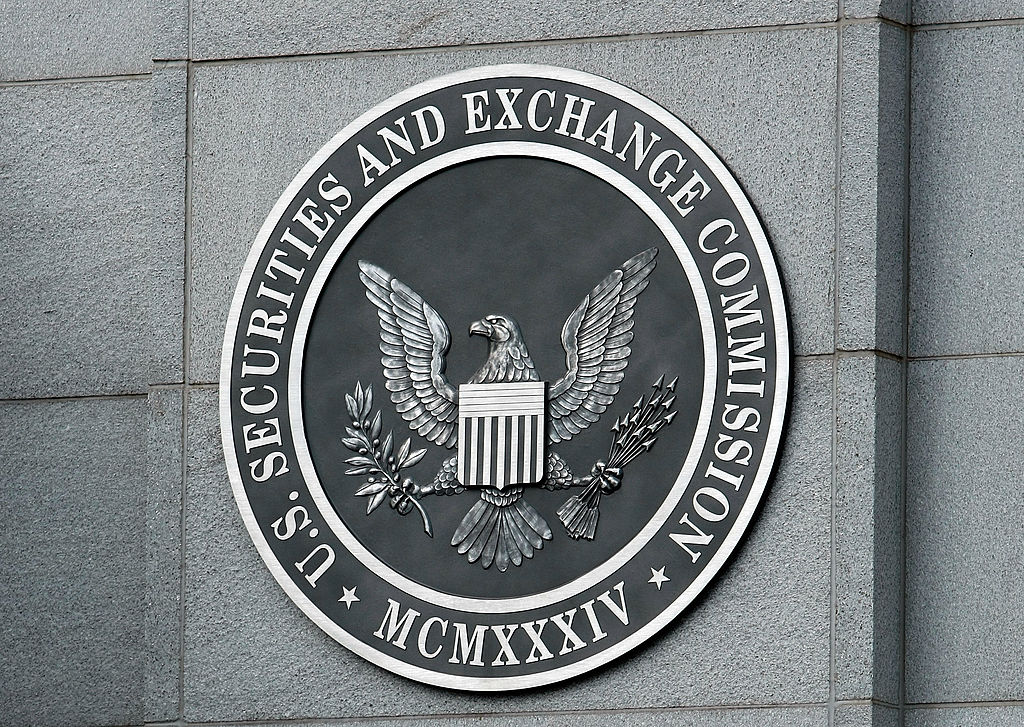Bitcoin retreated on Thursday morning in Asia in a broad-based sell off that hit all the top 10 non-stablecoin cryptocurrencies and reversed the gains seen Wednesday amid the unfolding implications of the U.S. securities regulator this week suing two of the world’s biggest cryptocurrency exchanges, Binance and Coinbase. Cardano’s ADA token was the biggest loser, followed by Solana and Binance’s BNB.
Broad slide
Bitcoin slid 3.24% over the last 24 hours to US$26,300 at 7:00 a.m. in Hong Kong, reversing the gains seen on Wednesday. The world’s largest crypto by market capitalization has lost 3.21% over the past seven days, according to data from CoinMarketCap.
Ether dropped 2.81% in the same period to US$1,831, and logged a 2.01% weekly loss.
Cardano’s ADA was the biggest loser among the top 10, with an 8.88% decline, bringing its losses for the week to 14.06%.
Solana saw the second largest daily loss, down 8.82%. The BNB token issued by the Binance crypto exchange slid 8.46% for a drop of 15.69% for the seven days.
After the U.S. Securities and Exchange Commission (SEC) filed lawsuits against Binance and Coinbase earlier this week, Binance founder Changpeng Zhao was issued a summons by a U.S. court that was addressed to a Binance office in the Grand Caymans. It gave him 21 days to respond.
Zhao tweeted Wednesday that this was “just part of the SEC compliant process” and that he will not have to appear in court in person.
A main element of the SEC complaint is a listing of cryptocurrencies it regards as unregulated securities. Binance.US, the trading platform Zhao set up to serve U.S. clients, said Thursday morning in Asia that it will remove 10 Bitcoin and BUSD trading pairs on Friday midnight Hong Kong time. The pairs set to be scrapped from the platform include ATOM/BTC and MANA/BTC.
Binance.US has also suspended its over-the-counter trading portal, according to the statement.
Coinbase chief executive officer Brian Armstrong said Wednesday at the Bloomberg Invest conference in New York that Coinbase will continue running its crypto staking service and that the SEC’s lawsuit filed on Tuesday against the company was “not unexpected.”
“We are not going to wind down our staking services. As these court cases play out, it’s really business as usual,” Armstrong added. “We had many discussions within the last year when their [SEC’s] tone started to change. They started to come to us with more questions about the business, so we were very forthcoming.”
In another related development, the SEC was ordered on Tuesday by the U.S. Court of Appeals for the Third Circuit to respond to Coinbase’s pending petition for rule-making clarity within seven days. In April, Coinbase sued the SEC and requested the regulator publicly respond to the exchange’s July 2022 petition asking for clearer crypto regulation guidelines.
“We continue to believe that rules of the road, from legislation or rulemaking or both, must come before enforcement actions,” Paul Grewal, chief legal officer of Coinbase, tweeted on Wednesday. “That is why we petitioned the SEC for rulemaking nearly a year ago in the first place.”
Good news?
Alessio Quaglini, chief executive officer of Hong Kong-based digital asset custodian Hex Trust, said while the latest actions by the SEC may create short-term uncertainty and volatility, in the longer term, the market needs clarity on regulations.
“It’s an opportunity for the crypto industry to grow leaner, stronger and more compliant. Prior to this week’s events, the SEC’s enforcement actions have been chaotic, but their stance this week is crystal clear.”
Regulatory pressure that’s been mounting in the US has been redirecting firms to other jurisdictions where the landscape is clearer, he said.
“Positive progress has been made across Dubai, Hong Kong and Europe – but there’s room for improvement,” he said, adding that many of the industry’s problems of recent years could have been avoided with a clear framework to properly segregate clients’ assets and operate transparently and legally.
Justin d’Anethan, head of APAC business development at Belgium-based crypto market maker Keyrock, said the SEC’s move was not unexpected, but still came out of the blue and spooked many investors.
As for the targeted exchanges: “It also stands to reason that the SEC would have a weaker case when it comes to Coinbase – which was listed on the Nasdaq with the SEC’s approval, works with U.S. licensed businesses and even helps the U.S. government with liquidating any collected bitcoins,” d’Anethan said.
NFT sales fall
In the non-fungible token (NFT) market, the Forkast 500 NFT index dipped 1.03% to 3,241.93 in the 24 hours to 9:45 a.m. in Hong Kong.
NFT sales on Ethereum fell 7.89% over the last 24 hours to US$15.48 million, and sales on the Bitcoin network dropped 57.42% to US$3.93 million, according to CryptoSlam data.
“Once you look past the wash trading, you’ll see Bored Ape Yacht Club has had one of its lowest days of sales of the year,” Yehudah Petscher, NFT Strategist at Forkast Labs, the parent company of Forkast.News, said on Thursday. “It fell out of CryptoSlam’s top 10 NFT collections by sales value, even with a new teaser video from Yuga Labs dropping today.”
Sales of DMarket, a Mythos blockchain-based collection of gaming NFTs, shrank 21.07% over the past 24 hours to US$1.08 million. The collection still recorded the most daily sales across the NFT market, however.
Mutant Ape Yacht Club saw the second-largest sales of US$1 million, followed by Uncategorized Ordinals’ US$985,603 and $MXRC’s US$900,090, according to CryptoSlam data.
“Following a drop yesterday, real traders are starting to get their hands on the latest BRC-20 on Bitcoin called $MXRC,” Petscher said.
In another development, video game retailer GameStop has “terminated’ its chief executive officer Matt Furlong, the company said Wednesday in a statement. GameStop did not name a replacement, but has elected Ryan Cohen, founder of e-commerce company Chewy, as executive chairman.
Furlong, who joined GameStop in June 2021, spearheaded the company’s NFT marketplace rollout in July 2022. However, the company said in December that it would shift its focus back to video games and collectibles with less focus on NFTs.
GameStop shares on Nasdaq closed 5.75% higher on Wednesday, but dropped 19.23% in after-hours trading.
U.S. stock futures edge down

U.S. stock futures traded marginally lower as of 11:30 a.m. in Hong Kong. Dow Jones Industrial Average futures edged down 0.05%, and S&P 500 futures dipped 0.01%. Nasdaq Futures fell 0.05%.
Overnight in the U.S., the three major stock indexes were mixed. The Nasdaq Composite dropped 1.29%, and S&P 500 slid 0.38%. The Dow Jones Industrial Average climbed 0.27%.
In macroeconomic developments, Canada’s central bank on Wednesday unexpectedly hiked its overnight rate to 4.75%, a 22-year high. The same day, the Paris-based Organisation for Economic Co-operation and Development (OECD) said the global economy is “showing signs of improvement but the upturn remains weak.”
The world economy is projected to grow 2.7% this year, compared to 3.3% GDP growth in 2022, according to OECD’s latest economic outlook.
“Macro markets have retraced sharply after the Bank of Canada surprised investors by raising rates, pushing equity indexes in the U.S. lower,” d’Anethan of Keyrock said.
The U.S. Federal Reserve will meet on June 14 to make its next move on interest rates, which are now between 5% and 5.25%, the highest since 2006.
The CME FedWatch Tool now predicts a 66.7% chance the Fed will leave rates unchanged in June, and a 33.3% chance for another 25-basis-point rate hike.
(Updates with equity section.)






